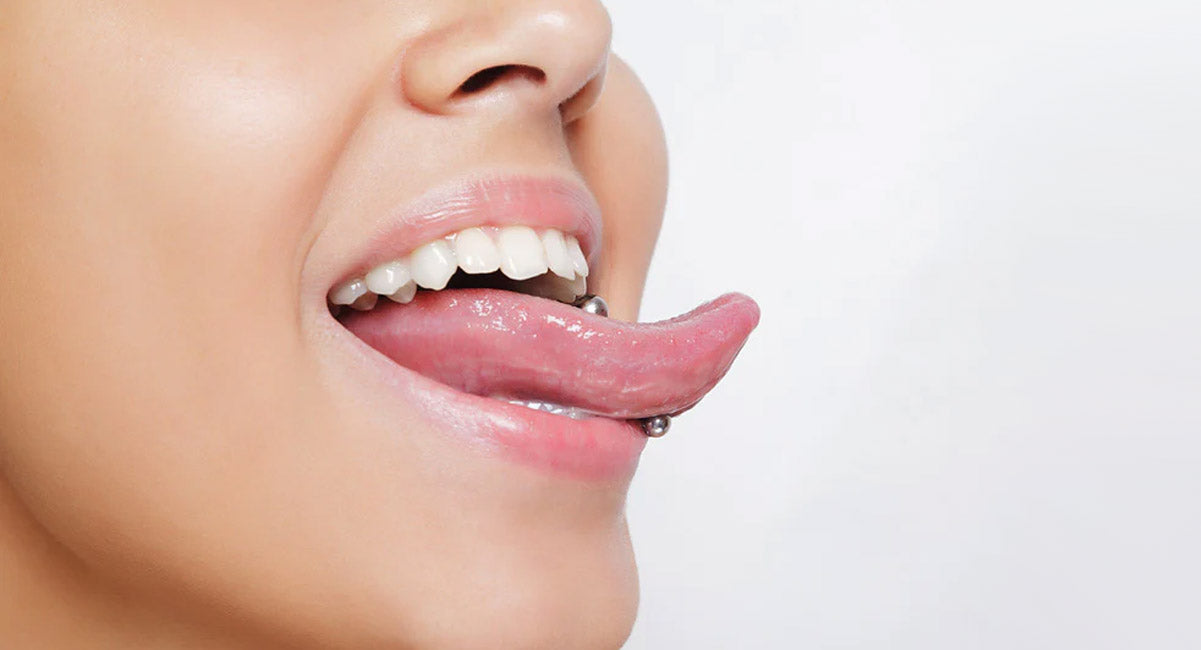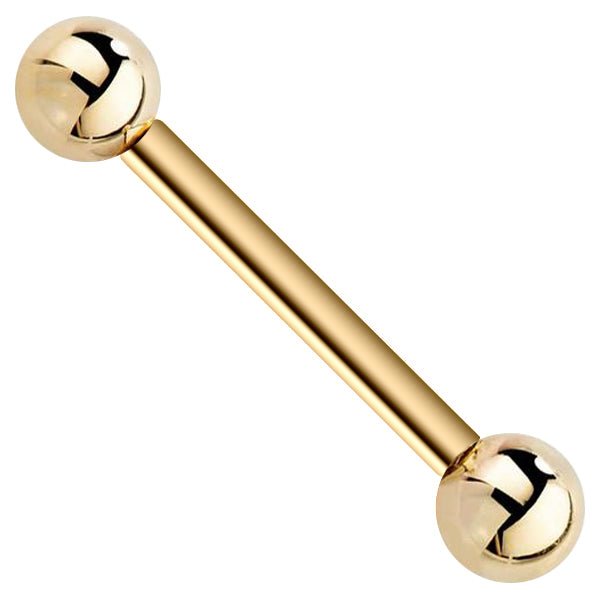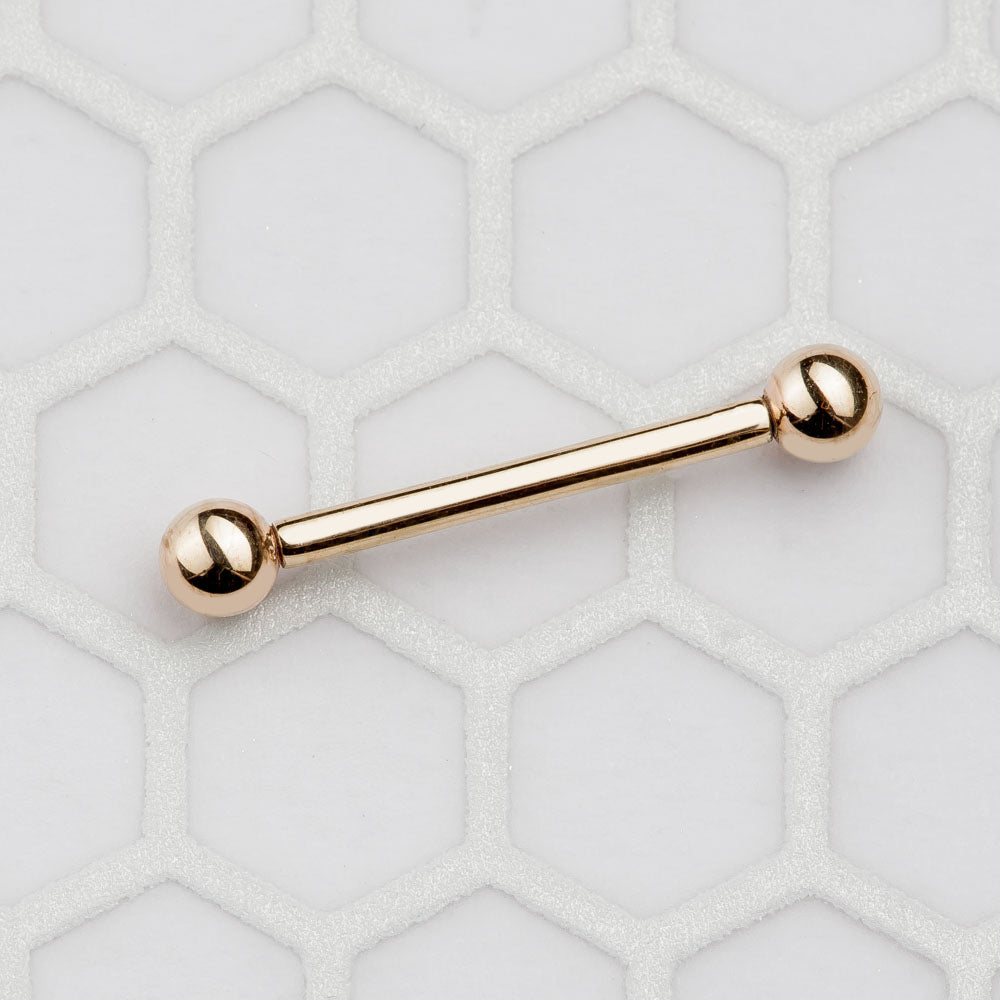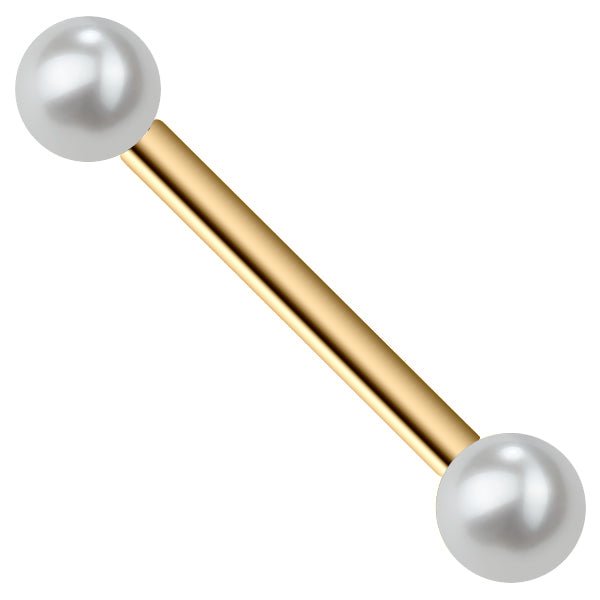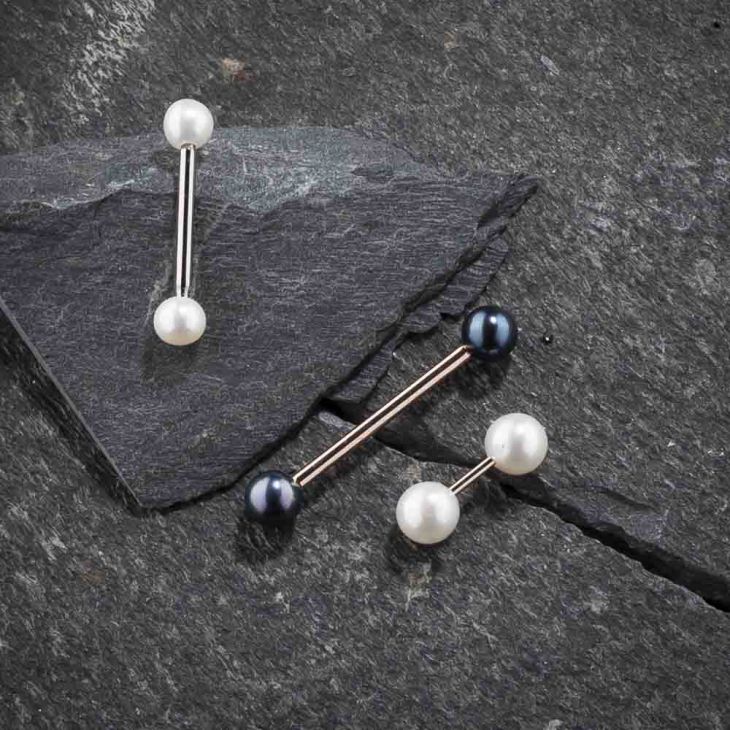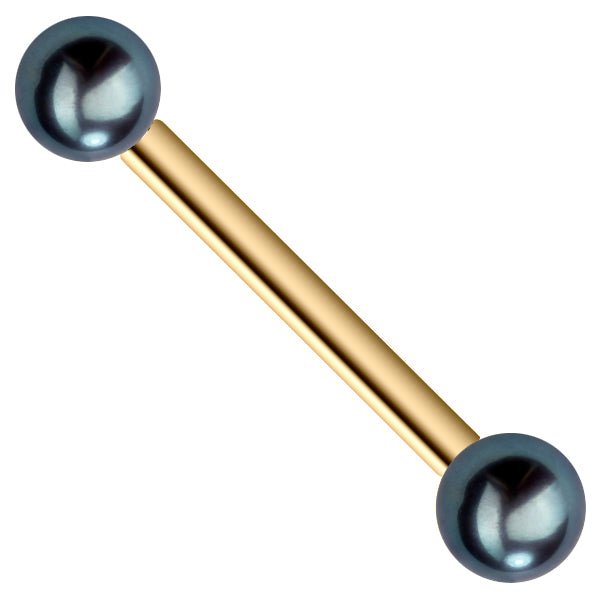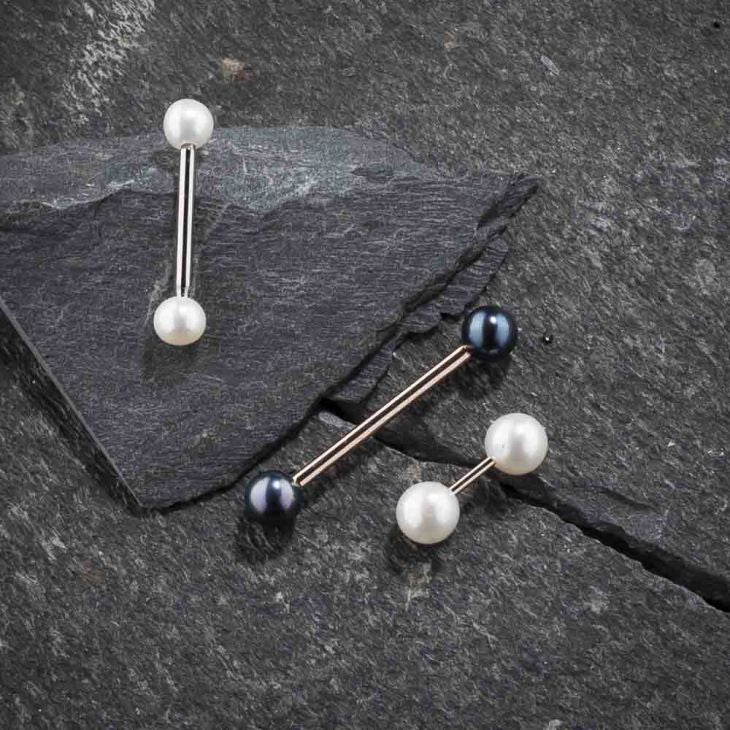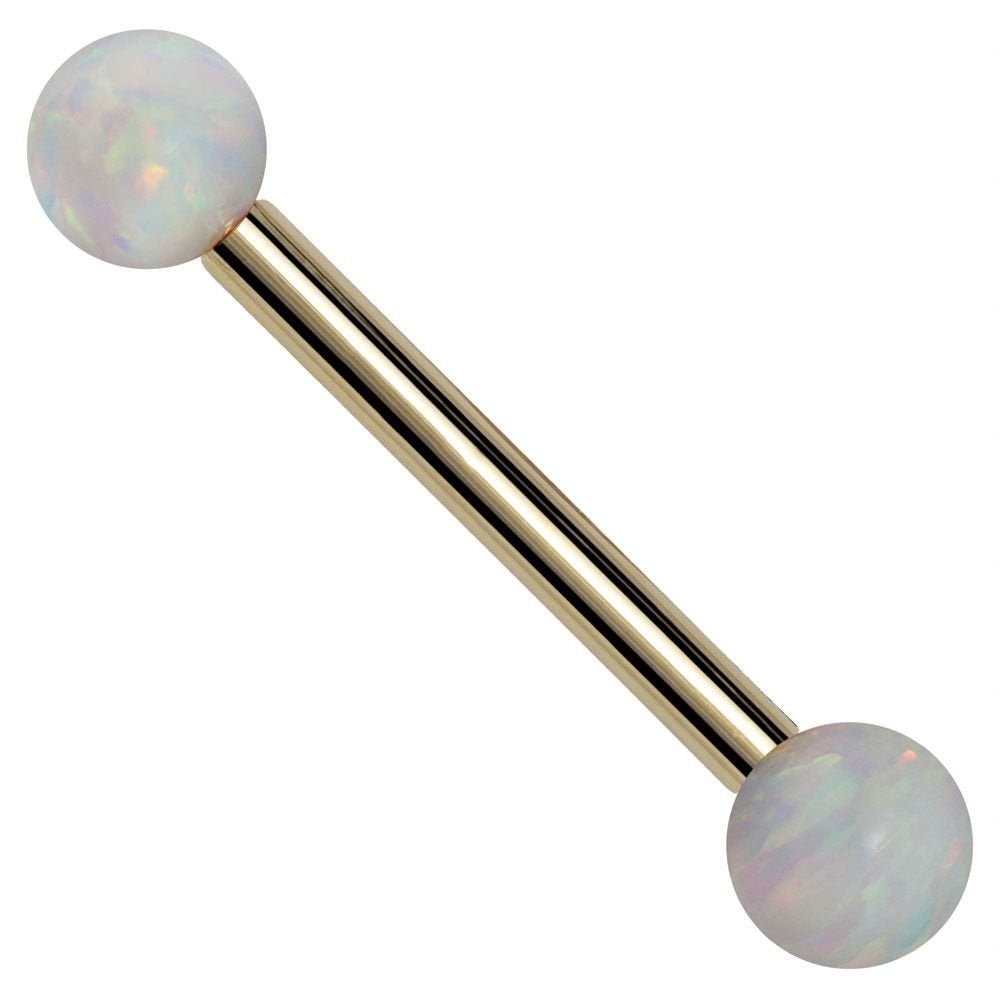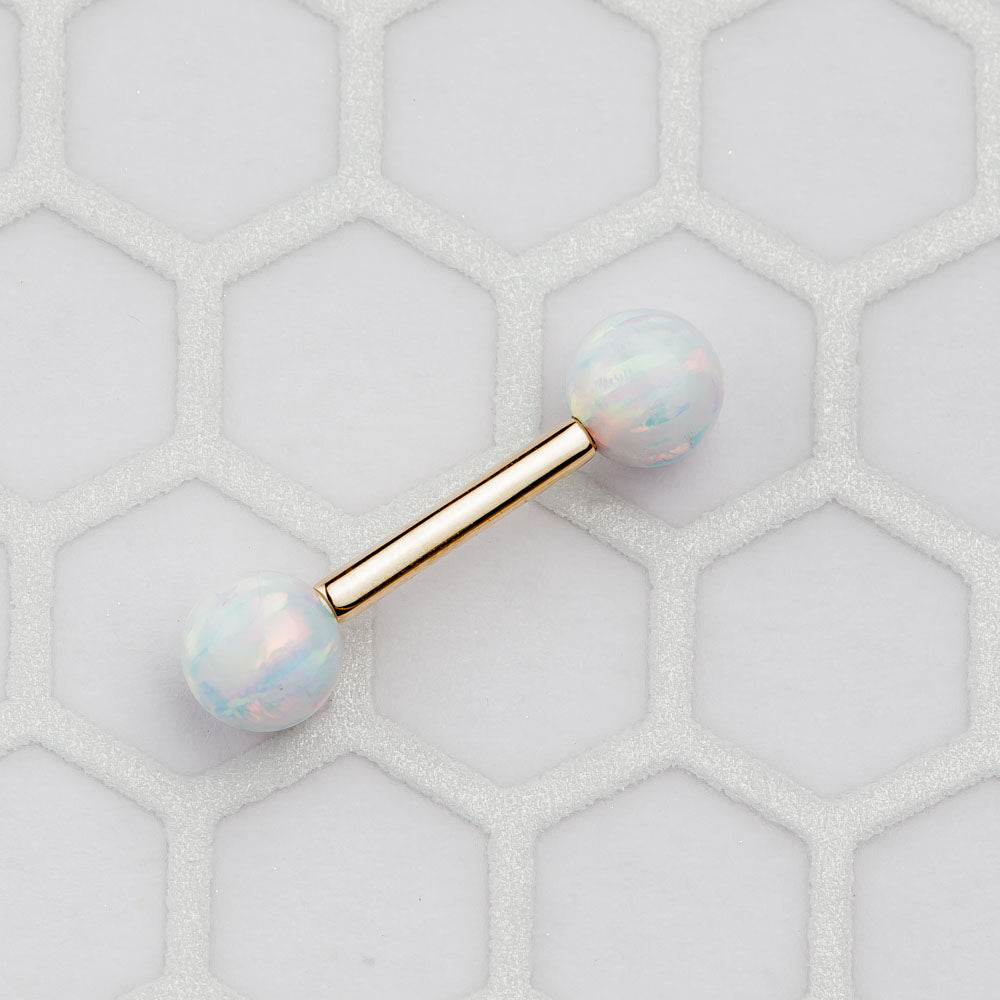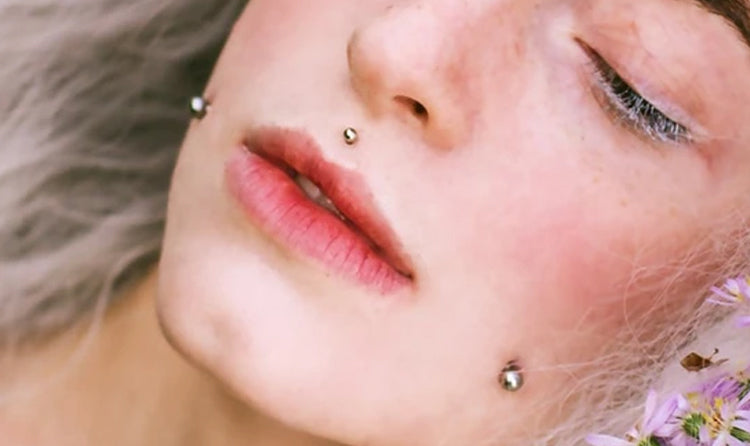The Tongue Piercing: Everything You Need To Know
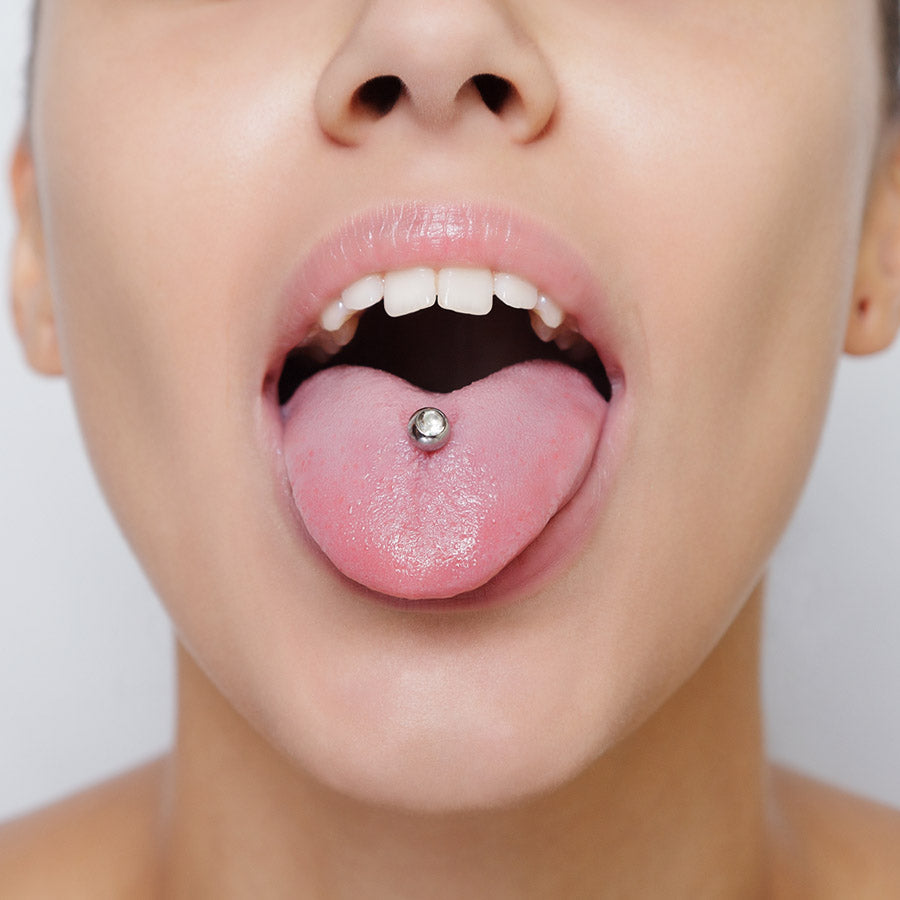

From the type of tongue rings to use in your piercing (which aren't really "rings" but rather barbells), to coming up with a daily routine for cleaning your new piercing. Here is all the information you need to know so you are well-informed and feel confident when you finally pierce your tongue or are ready to get new jewelry.
Tongue Piercing Risks & Safety Measures
Before getting a tongue ring, it is important that you understand the risks associated with piercing and the safety measures you can take to avoid them. A professional piercer will be able to discuss risks and safety with you, but it is a good idea to be informed before you venture into a body piercing shop.
A properly performed oral piercing will take only seconds to complete, with minimal discomfort and bleeding. In fact, often there is no bleeding at all, but keep in mind that everyone will have a different experience depending on the type of piercing they choose, and their personal reaction to being pierced. Common oral piercing concerns are:
1. The safety of the procedure itself.
2. Possible damage to teeth, dental work and oral structures.
3. Risk of infection.
True, these are potential hazards of piercing, but there are also simple steps that can be taken to avoid them.
Choosing The Right Body Jewelry
A typical tongue piercing is done with a 14 gauge (14G) high grade titanium, or gold barbell measuring 7/8-inch. Note that's the size of an initial tongue piercing; once healed the length of the barbell can be shortened.
There is a risk of damage to teeth and/or dental work with tongue and other oral piercings, but these risks can be significantly reduced by choosing the right tongue piercing jewelry. Consult with your piercer to choose body jewelry that is appropriately sized, is of the right material, and is well made. Your piercer can help you make the right choice, but it’s important that you be informed as well. Certain styles of piercing jewelry is appropriate for certain types of piercings, so don’t try to use a lip ring for as a tongue ring.
Longer barbells allow for swelling, and should be used for new piercings and kept in until the piercing is healed, but after the healing process they should be replaced with shorter barbells to avoid damage to teeth and dental work or structures. It may also be advisable to wear a smaller ball on the underside of your tongue, as this will also reduce the risk.
Check the quality of the body jewelry material to be sure the metal is crafted from high grade titanium or 14k gold. And remember, the cause of such damage is often the result of constant “playing” with the piercing, so use caution.
FreshTrends Tip
To care for a tongue piercing, wash it two to three times daily with a sea salt rinse and avoid any activity that will cause additional swelling or irritation until it’s fully healed—around four to eight weeks.
Related Products
View allOral Piercings - The Correct Placement
Crucial to health, safety and comfort is proper placement of your body piercing. Discuss this with your piercer before the procedure. A properly positioned tongue piercing will be on the mid-line of your tongue (right in the middle), and placed approximately 3/4-inch back from the tip, and will likely be pierced on a diagonal with the top leaning back slightly, allowing the top ball to lean away from your teeth. This will also be a more comfortable position as the top of your piercing will be positioned in the higher part of the roof of your mouth where there is more room.The bottom of the tongue piercing should be just in front of the web-like skin under your tongue (known as the lingual frenulum).
Oral Piercings - Aftercare
If proper precautions are taken during the actual piercing process, the risk can be greatly reduced. That means using sterile instrument, disposable, one-time use needles, and high quality, sterile jewelry. What is most important to the overall success of your piercing is your commitment to proper hygiene and care during and after the healing process. Your piercer should give you verbal and written instructions, and should explain to you the importance of cleansing, and the different cleanser options available. Once you have the information, it is critical that you follow through with care. You can also check out our Piercing Aftercare instructions and find a great selection of piercing care products.
Basic Hygiene
- Avoid sharing drinks and utensils.
- Always wash your hands before touching your piercing or the surrounding areas.
- Get a new tooth brush and be diligent about keeping it clean while healing.
- Don’t put things in your mouth like pens and other things that carry bacteria.
- Avoid oral sexual activity during healing.
Avoiding And Treating Swelling
- Ice is the perfect way to avoid swelling. Suck on ice chips or hold an ice pack to the pierced area for a few minutes, several times a day.
- Keeping your head elevated at night can reduce swelling of your body piercing. Prop your head up with a few pillows while sleeping.
- Anti-inflammatories like ibuprofen (Advil) can be purchase over the counter and can reduce and/or prevent swelling.
When properly performed and properly cared for, most body piercings will typically heal fast with minimal discomfort, swelling and bleeding.
People are often concerned about infection, particularly with oral piercings because they believe the mouth to be dirty given that so many germs and bacteria can pass through the mouth through everyday activities like eating, drinking, talking and even breathing. While this is true, our saliva actually contains naturally occurring antimicrobials that get rid of the potentially harmful toxins that may enter.
Your Tongue Piercing Is Healed. Now What?
You followed all the advice and you’re tongue piercing healed. Now you can finally start shopping for tongue rings.
When shopping for new jewelry, you need to know what your piercing's size is. We have a handy body jewelry size chart for your reference. You want to look for 14 gauge (14G) tongue barbells with a wearable length of 5/8". Our tongue rings are nickel-free 14k gold and the bar is internally threaded, which means that the threading is on the ball not the barbell, making it easier to pass through the piercing.
Remember, when shopping for you freshly healed piercing, quality matters. Always opt for a nickel-free metal that will keep it happy and healthy.
